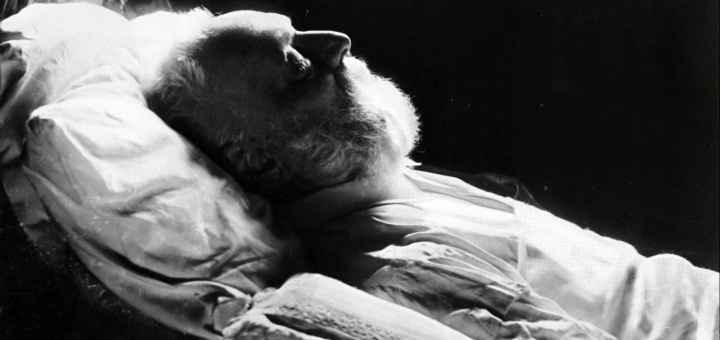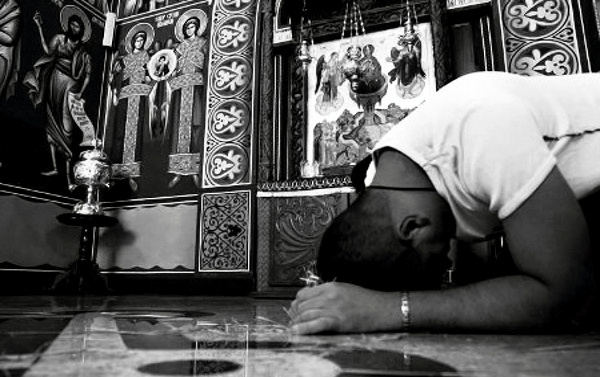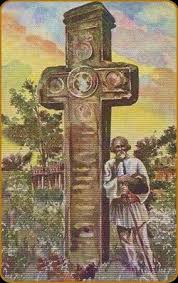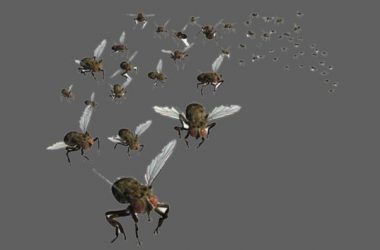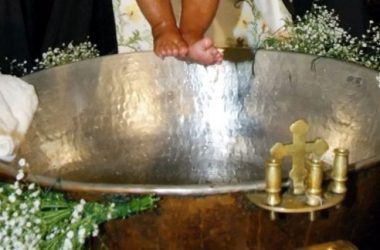Death says a lot about a man. I realized that the way someone dies tells something about the way he has lived. Before dying my father grabbed the receiver and said: `Come.I think I’m dying.`
My father lived alone in a remote village and he died alone. He was a loner all his life. But he wanted to have spectators at his loneliness. And he died right as he lived. His whole life was a demonstration. And his death was the same. He wanted to demonstrate that he was not afraid of death just as he wanted to demonstrate that he could live alone.
He lived and died as he wanted…When he saw me in the monastic robe for the first time he said: What did the priests do to you? Did they do any head surgery to you to take out your mind? Your mind is too good to believe in their nonsense. To be able to live with them you need to have a brain with the size of a nut. Shake your head, doesn’t your brain sound when it touches the cranian box? Shortly, I had a son but from now on I won’t.
`This means that I won’t have any father`, I answered and wanted to shake his hand.
`You’ll be my son again when you come as I knew you.`
`And I’ll have a father when you come to the icons where I be.
This is how we separated. I went out and we didn’t keep in touch for seven years. In this time my father read my books. In his pride he said that I am smarter than him and it is a great win for the priests to draw me on their side.
Then I found out that he gave some of my books to some teachers from that locality. He was proud of me somehow but this did not fix the relationship between us. My father even translated one of my books in Russian, Between Freud and Christ, and this without asking him. In the manuscript I found a note at a confession I entitled `With a kiss closer to death`. Near that my father wrote: `Great. It is more brilliant than the myth of Sisyphus by Camus. Then near a statement from the same book: `Till here it was good from here it starts the priestly nonsense.` However beyond this almost obsessive concern for everything I wrote my father didn’t seem to understand me. He did not allow himself to go beyond reason to see life as a mystery. I looked at my dead father in the cold house and even then it seemed that we went on demonstrating something to each other. It was for the first time when he didn’t answer. But it was not necessary. He had a visible advantage before me. he had the major advantage, the major experience. Now he knew everything, he had seen everything. Only he couldn’t speak. He was dead. And I was as dead as him.
I knelt and kissed his big cold hand. Then I pressed my forehead on the back of his palm and said: `Forgive me. I am blood of your blood and bone of your bones.` This is what I felt I had to say and I realized that this biblical testimony revealed to me in that moment the mystery of life and love.
It was for the first time when I was sure that my father heard me and understood me. It had never been such a certainty between us. We buried him on Christmas. There are all kinds of folkloric beliefs that those who died before a great holiday go right in the Kingdom of God. They say that the skies are open then. I don’t know what to say about this folkloric belief but there was no doubt that on that day the skies were open. The light that came down from the sky touched the white snow and everything was pure like in my childhood…After a long time full of worries I dreamt my father in the garden of our house from Oricova. He looke right as I remembered him from my childhood. He came close to me and looked at me. I was surprised of his apparition.
`How did you come?` I asked him.
`What do you think that I am self-sufficient? I come only when I am allowed, my father answered. What surprised me was that my father was humble and respectable. There was no more trace of pride in him, he was calm and serene.
`And how is it, is it good?` I asked him.
`Yes`, he answered.
`But tell me at least you understood me?`
`Yes, I understood you.` my father answered and the dream ended. The joy woke me from my sleep.
To tell someone that you love him it means to tell him that you don’t want to see him dying at all. Of course that everyone wants to know that his dear reposed ones found salvation. Because of this wish people exaggerate the qualities of the reposed and they almost don’t see any more flaws. But who knows, maybe this is the true view? Maybe love has the right to exaggerate the good and ignore the bad? Maybe right this wish makes God answer to our love in accordance with that and not in accordance with our sins? If it is so then even death has its sense. The sense of death is to remind us that we didn’t love enough.
From hieromonk Savatie Baştovoi, The run to the field with crows, Cathisma Publishing, Bucharest, 2012, p. 176-180

